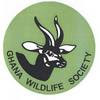Of course one’s inklings or gut feelings sometimes turn out to be true, other times not. Today was one of the latter! At our first stop en route to the proven wintering ground for at least one wood warbler in Feb last season, in some degraded forest/farmland, what do you know, we find a wood warbler. Yesterday’s assumption that we may be ahead of the birds is quite wrong! Point disproven, we aim for an area of protected forest abutting the Togo border, at the Wli Falls community project. Upon arriving at the village we are greeted by a local guide to take us through the forest towards the falls, and at regular intervals along the forest path we switch on the wood warbler song and call and await a response for some moments after. The exercise proves fruitless in terms of wood warblers, sadly, but really quite worthwhile as regards the scene that unfolded at the end of our walk. Yes, there was a pretty spectacular waterfall, but also, hanging from the rock-face right next to the falls, was a host of straw-coloured fruit bats, apparently enjoying the noise from the tumbling water. If I eventually get a better link to the internet, I’ll post a picture! Having essentially achieved our goal, i.e. finding a wood warbler at the same northernmost latitude in the east as we’d explored for them last year, we set off for Accra; a quick service for the car is required, and some respite for the team before we settle back into catching and tracking mode at Pepease from the 15th.
The project
Our knowledge of ecology of migrants in their wintering grounds is extremely poor and severely hampers our ability to explain these declines and conserve this group of species. We lack even basic information about when birds arrive, the habitats they use and how they move around Africa.
The aim is to understand how Palearctic-African migrants use and move around the different vegetation zones found in West Africa, ranging from the semi-desert Sahelian region in Burkina Faso to the lush tropical rainforest in southern Ghana, and whether habitat change may impact them on their wintering grounds.
During the temperate winter of 2009/2010, using point count methodology and mist-netting, we recorded migrants along a degradation gradient at five different stations on a north-south transect. In 2010/2011 we plan to re-visit these sites as well as roving further afield to get a broader picture of migrant habitat use.
The aim is to understand how Palearctic-African migrants use and move around the different vegetation zones found in West Africa, ranging from the semi-desert Sahelian region in Burkina Faso to the lush tropical rainforest in southern Ghana, and whether habitat change may impact them on their wintering grounds.
During the temperate winter of 2009/2010, using point count methodology and mist-netting, we recorded migrants along a degradation gradient at five different stations on a north-south transect. In 2010/2011 we plan to re-visit these sites as well as roving further afield to get a broader picture of migrant habitat use.







No comments:
Post a Comment
Note: only a member of this blog may post a comment.